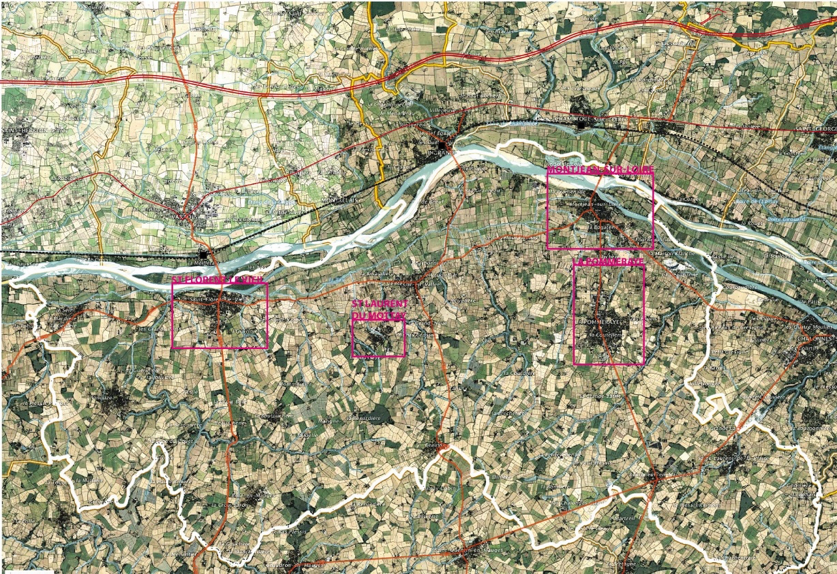This case study, prepared jointly by CEREMA and Logiville, covers a rural and peri-urban territory integrated in an area of more than one million inhabitants. The role play includes four small towns joined into a cooperative structure.
These municipalities share collective issues, including:
- Ensuring the on-site development of existing industries and welcoming new ones;
- Strengthening agriculture, which maintains landscapes, while providing the necessary extra income for farmers;
- Making the most of the territory’s touristic assets, especially the river that borders it;
- Implementing the Territorial Energy Climate Plan, with the aim of reducing GHG emissions by 20% by the end of the cooperative structure mandate;
- Meeting the demand for affordable housing while saving space;
- Restructuring the trading opportunities and encouraging traditional trades to return to renovated town centres.
But municipalities must also make trade-offs between one another to share the new housing supply and to rationalize existing public facilities by eliminating duplicates. The budgeting pressures on local authorities require them saving on operation whilst modernizing the service they offer.
The challenge of the game simulation is to build local public governance as well as involving private actors who are often mobile and likely to invest elsewhere.
